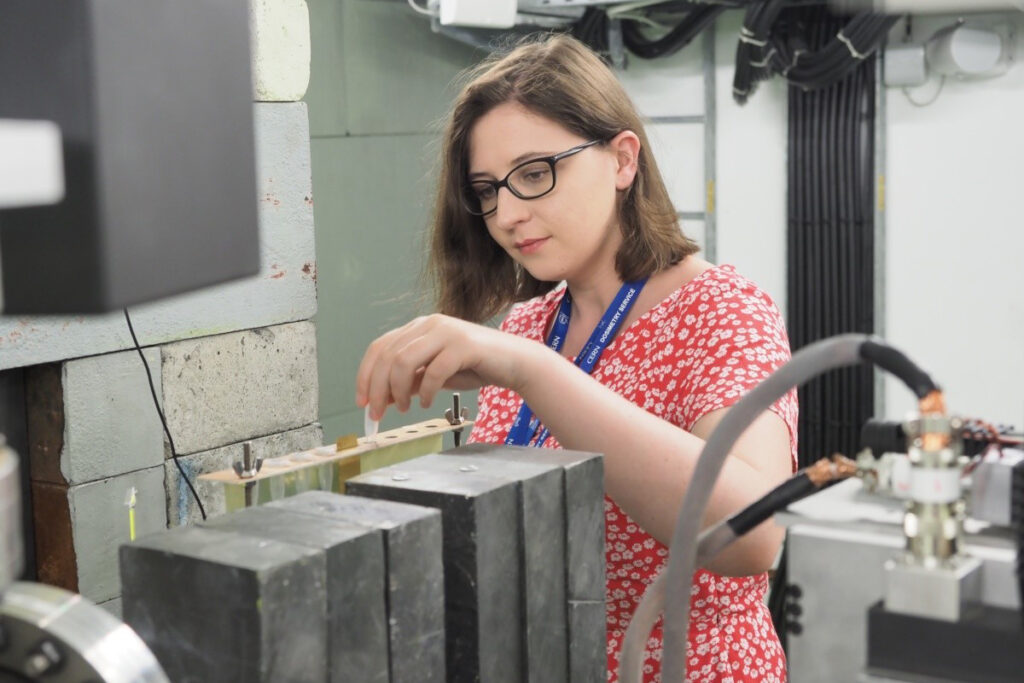Dr Kristina Lucy Small is a Postdoctoral Research Associate (PDRA) at the Cockcroft Institute (CI) and the University of Manchester. She initially joined the Manchester Electron Wakefields (MEW) group within the Manchester Accelerator Group as a PhD student studying Very High Energy Electron (VHEE) radiotherapy. During her time there, she initiated a collaboration with the Cockcroft Institute, The Christie NHS and the PRECISE group. This resulted in important experiments on plasmids at both CLARA at Daresbury Laboratory and CLEAR at CERN.

The experiments at CERN were particularly exciting as they were unique in investigating the FLASH effect versus conventional radiation at VHEE energies with plasmids. This led to a publication in the Nature Journal, Scientific Reports (https://tinyurl.com/24jvuuww), which marked a critical step forward for radiotherapy with a new method to treat cancer. Advantages of this technique over existing methods include – potentially more precise and rapid delivery to tumours with reduced fractionation (number of times the patient has to have a follow up radiation treatment) which could result in fewer patient visits needed with a more conformal high dose delivered.
In 2023 Kristina returned to CI as a postdoctoral research associate, with a focus to her studies on the impact of VHEE beams on living cells and on plasmids. She has broadened her work to also study the impact of gold nanoparticles on DNA damage in plasmids. Her findings reveal a significant enhancement in the damage to both single and double strand DNA breaks.
Also, in anticipation of CLARA being available for experiments in 2025 Kristina has made a detailed Monte-Carlo-based study to parameterise dose delivery to water phantoms with the aim to ascertain the viability of FLASH delivery of dose — and this she has expanded to include several other European facilities.
Kristina is an example of the excellent educational programme at Cockcroft Institute, and to the strong collaborations readily initiated — both domestically and internationally — which facilitate independent research with the potential for ground-breaking discoveries.
Prof Roger Jones, University of Manchester
